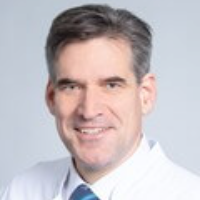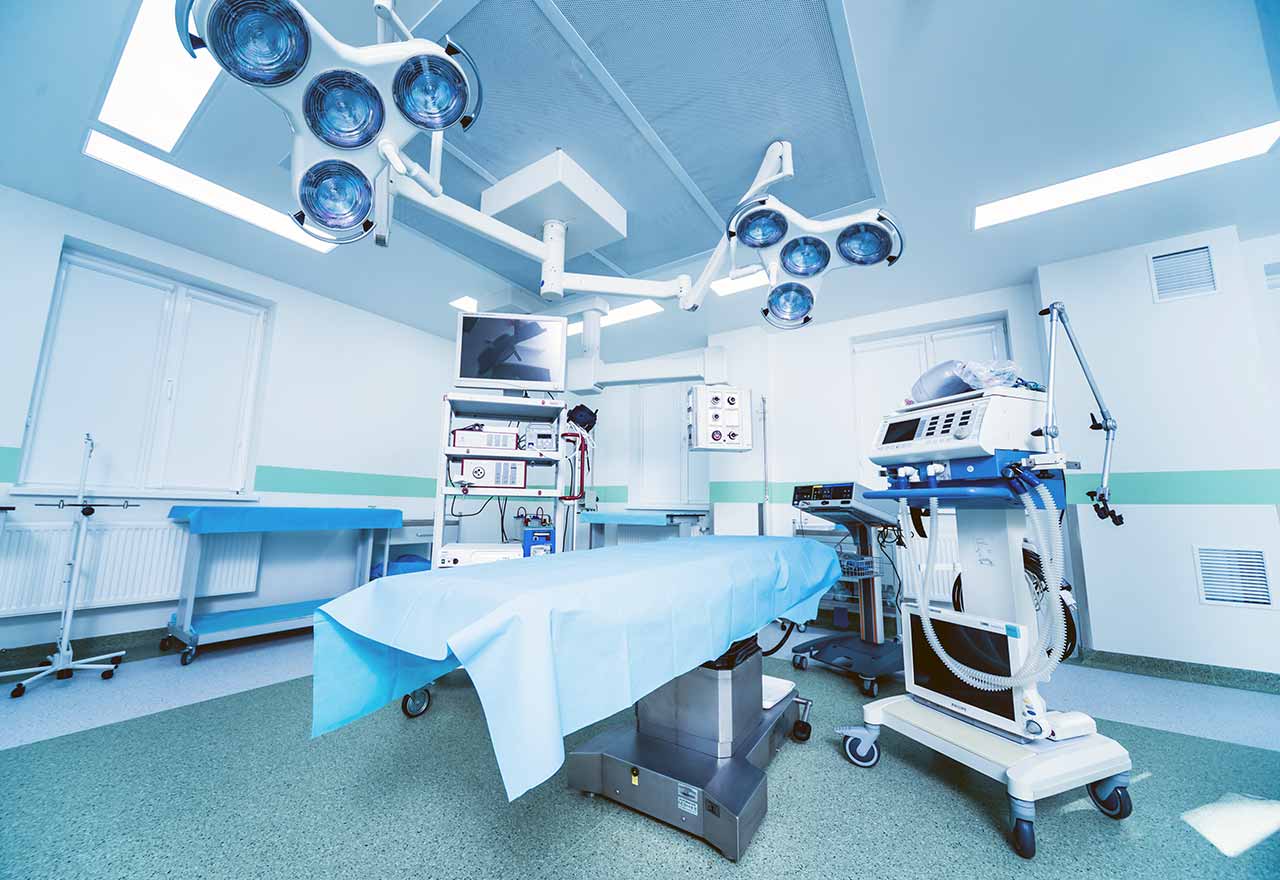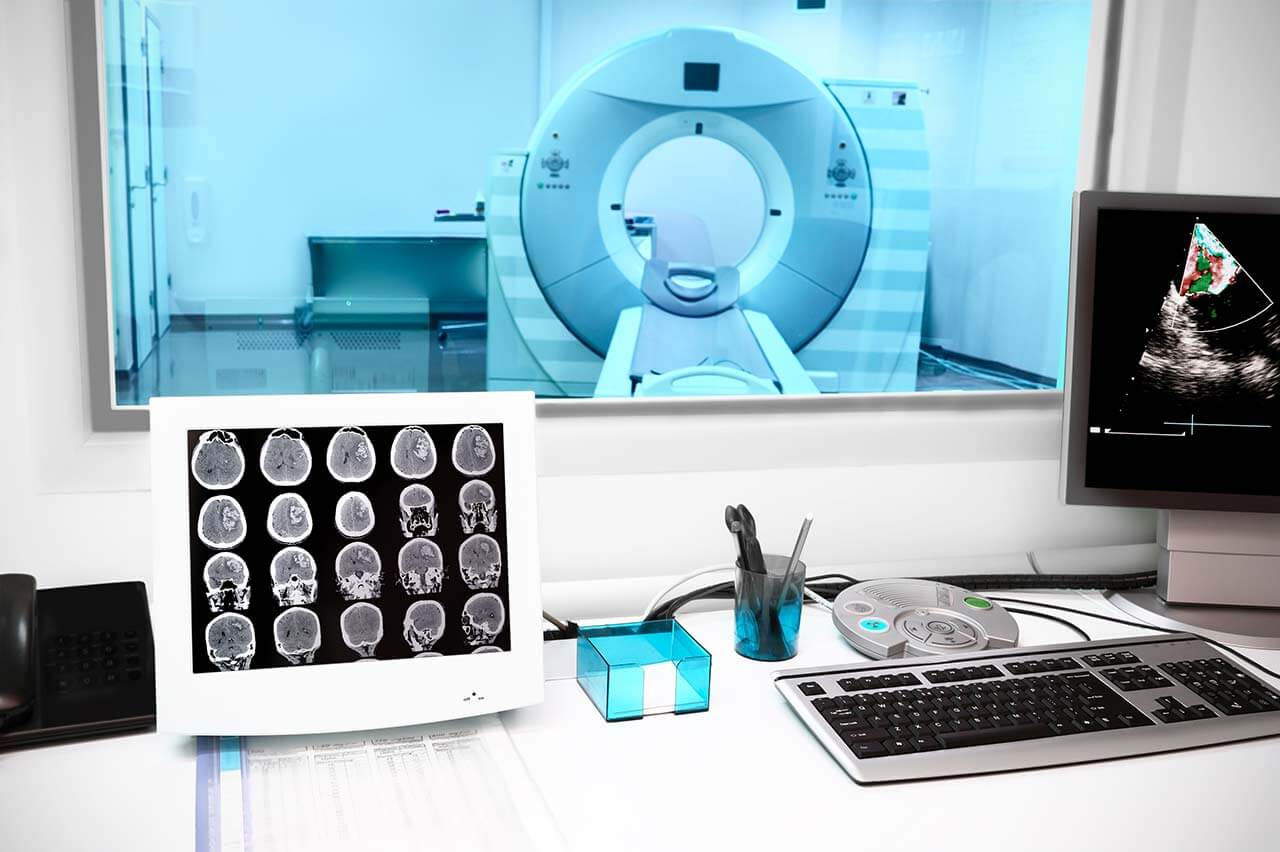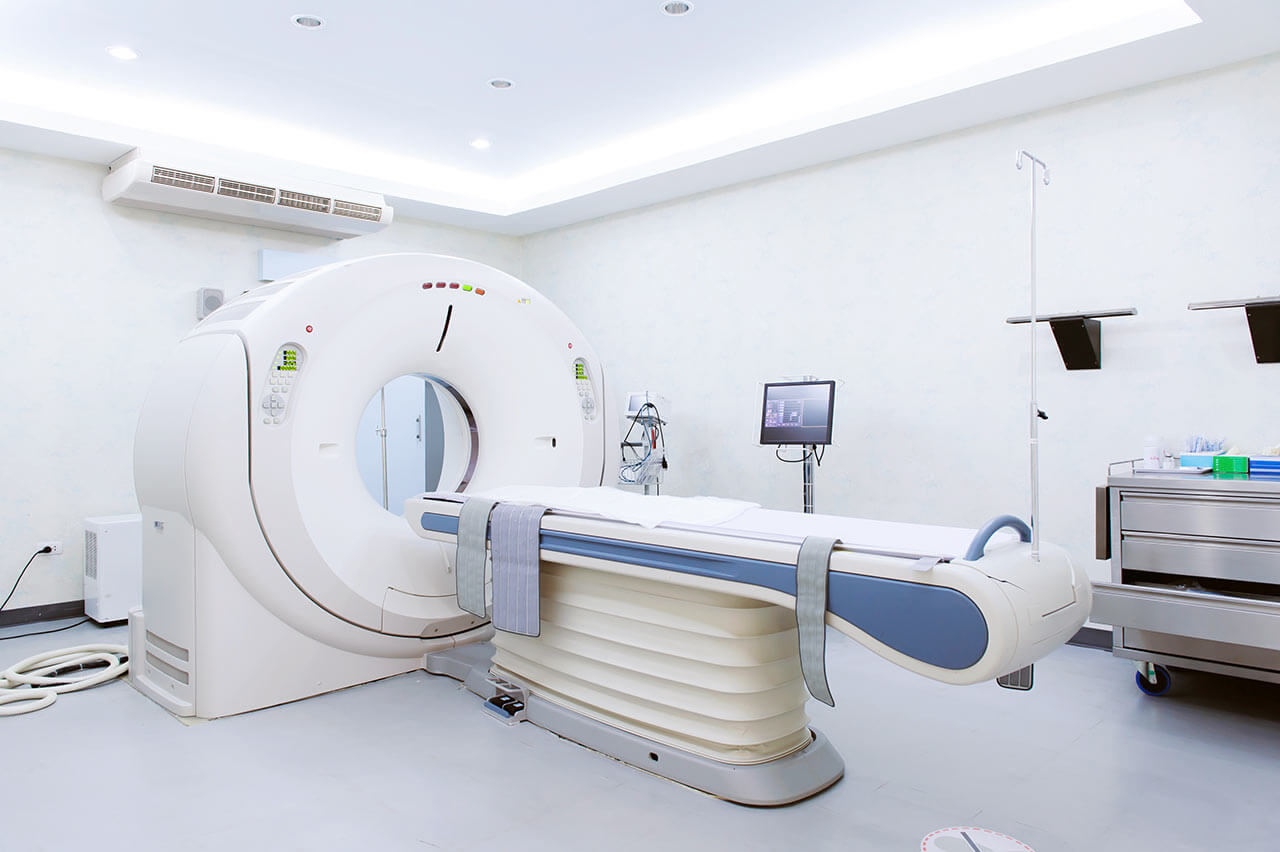
The program includes:
- Initial presentation in the clinic
- clinical history taking
- review of medical records
- physical examination
- laboratory tests:
- complete blood count
- general urine analysis
- biochemical analysis of blood
- inflammation indicators (CRP, ESR)
- indicators blood coagulation
- immune status
- x-ray examination of joints
- resting ECG
- echocardiography
- consultation of related specialists
- symptomatic specific treatment
- the cost of essential medicines and materials
- nursing services
- control examinations
- full hospital accommodation
- developing of further guidance
Required documents
- Medical records
Service
You may also book:
 BookingHealth Price from:
BookingHealth Price from:
About the department
The Department of Cardiology at the University Hospital Hamburg-Eppendorf specializes in the prevention, diagnosis, and treatment of the entire spectrum of heart conditions. The primary interest is the treatment of coronary artery disease, heart failure, heart valve defects, heart rhythm disturbances (arrhythmias), and acute coronary syndrome. The department provides conservative pharmacotherapy and performs catheter-based interventional cardiac procedures. The department's team of cardiologists has 4 cardiac catheterization laboratories equipped with the latest generation technology, which allows specialists to successfully perform minimally traumatic interventional treatment of heart valve defects, arrhythmias, and other heart conditions without traumatic surgery involving opening of the sternum. The department is also proud of its advanced diagnostic base: comfortable facilities for classical and stress echocardiography, transthoracic and transesophageal echocardiography, cardiac computed tomography, and cardiac magnetic resonance imaging. The department also has a Chest Pain Unit for the treatment of acute coronary syndrome. There are 237 inpatient beds in the department. Together with the Department of Cardiac Surgery, the medical facility forms one of the largest and most advanced Heart Centers in the country, and also has the status of the German Center for Cardiovascular Research (DZHK), of which there are only seven in Germany. The Head Physician of the department is Prof. Dr. med. Stefan Blankenberg.
The diagnosis and treatment of heart failure is one of the most important areas of clinical practice for the department's team of cardiologists – the medical facility is certified as a Heart Failure Center by the German Cardiac Society (DGK). There is a specialized outpatient clinic for patients with this diagnosis. Every year, the department provides medical care to more than 2,500 patients with severe forms of heart failure. Patients are cared for by a highly professional team of cardiologists, heart surgeons, nutritionists, and psychologists. The first line of treatment for heart failure is an individualized drug therapy regimen and lifestyle modifications: normalization of diet and body weight, cessation of smoking and alcohol consumption, regular dosed physical activity, walks in the fresh air, adequate sleep, and maximum avoidance of stressful situations. In more complex clinical cases, the department's cardiologists offer treatment with cardiac resynchronization therapy (CRT). The next line of treatment is the implantation of an artificial heart system.
Treatment of coronary artery disease using interventional catheter-based procedures is a specialty of the cardiologists in the department. The most popular intervention is percutaneous transluminal coronary angioplasty (PTCA), which consists of restoring the patency of a narrowed coronary artery using a special balloon and stent with catheter-based techniques under local anesthesia. The procedure is indicated for patients with severe forms of coronary artery stenosis, bifurcation lesions, multivessel coronary artery disease, and chronic coronary artery occlusion. To treat severe coronary artery calcification, specialists perform rotational atherectomy (rotablation) or intravascular lithotripsy (shock wave therapy), which are also done using catheter-based techniques. These procedures are highly effective and are an excellent alternative to traumatic coronary artery bypass grafting.
The department's therapeutic offering is complemented by the treatment of structural heart diseases: aortic stenosis, mitral and tricuspid insufficiency, atrial septal defect, and patent foramen ovale. A personalized treatment plan is developed in consultation with cardiologists and cardiac surgeons, who together review the results of the patient's preliminary diagnostic examination and select the optimal therapeutic option, such as drug therapy, catheter-based procedures, or surgery. For the treatment of aortic stenosis, specialists offer transcatheter aortic valve implantation (TAVI) or classic open surgery to replace the aortic valve with a prosthesis. Mitral regurgitation is most commonly treated with the MitraClip™ catheter-based technique – the Department of Cardiology at the University Hospital Hamburg-Eppendorf was the first in Germany to perform this innovative treatment in 2008. Since then, more than 1,000 MitraClip™ procedures have been performed here. The department also offers innovative methods for treating mitral regurgitation, such as the PASCAL™ and Cardioband™ interventional procedures, and, if necessary, catheter-based procedures for mitral valve repair. The medical facility also offers all the methods available in modern cardiology for treating tricuspid regurgitation, including drug therapy with diuretics, interventional treatment with the Cardioband™ TR and Tricento™ procedures, and surgical repair of the tricuspid valve.
The department's medical services include the following options:
- Diagnostics and treatment of heart failure
- Drug therapy and lifestyle modifications
- Cardiac resynchronization therapy
- Artificial heart system implantation
- Diagnostics and treatment of coronary artery and other coronary vascular conditions
- Percutaneous transluminal coronary angioplasty (PTCA)
- Rotational atherectomy (rotablation)
- Intravascular lithotripsy (shock wave therapy)
- Diagnostics and treatment of structural heart disease
- Diagnostics and treatment of aortic stenosis
- Transcatheter aortic valve implantation (TAVI)
- Diagnostics and treatment of mitral regurgitation
- MitraClip™ catheter-based procedure
- PASCAL™ catheter-based procedure
- Cardioband™ catheter-based procedure
- Diagnostics and treatment of tricuspid regurgitation
- Drug therapy with diuretics
- Cardioband™ TR catheter-based procedure
- Tricento™ catheter-based procedure
- Diagnostics and treatment of atrial septal defect
- Catheter-based occluder implantation
- Diagnostics and treatment of patent foramen ovale
- Catheter-based occluder implantation
- Diagnostics and treatment of aortic stenosis
- Diagnostics and treatment of arrhythmias
- Drug therapy
- Catheter ablation
- Radiofrequency ablation
- Cryoablation
- HELIOSTAR balloon ablation
- Pulsed field ablation (PFA)
- Pacemaker implantation
- Implantable cardioverter defibrillator placement
- Cardioversion
- Diagnostics and treatment of genetically determined cardiovascular diseases
- Diagnosis and treatment of hypertrophic cardiomyopathy
- Diagnosis and treatment of arrhythmogenic right ventricular cardiomyopathy
- Diagnosis and treatment of non-compaction cardiomyopathy
- Diagnosis and treatment of Fabry disease
- Diagnosis and treatment of Pompe disease
- Emergency medical care for acute coronary syndrome
- Other medical services
Curriculum vitae
Higher Education and Professional Career
- 1989 - 1996 Medical studies at the Johannes Gutenberg University Mainz, Johann Wolfgang Goethe University of Frankfurt, and Mount Sinai Medical School, New York.
- 1996 State examination and doctorate.
- 1996 - 2002 Resident and Research Fellow, Department of Internal Medicine II, University Hospital Mainz.
- 2002 - 2003 INSERM Fellowship for Postgraduate Training in Molecular Genetics and Genetic Epidemiology (INSERM U525), Faculty of Medicine, Pitié-Salpêtrière University Hospital, Paris, France.
- 2003 - 2005 Resident and Research Fellow, Department of Internal Medicine II, University Hospital Mainz.
- 2004 Habilitation, Department of Internal Medicine II, University Hospital Mainz.
- 2005 - 2011 Senior Physician, Department of Internal Medicine II, University Hospital Mainz.
- 2005 - 2011 Full Professor in Medicine and Faculty Member, Johannes Gutenberg University Mainz.
- 2007 - 2011 Managing Senior Physician and Deputy Head, Department of Internal Medicine II, University Hospital Mainz.
- 2008 - 2011 Representative of the Vascular Disease Prevention Interdisciplinary Task Force.
- Since 2011 Head Physician, Department of Cardiology, University Hospital Hamburg-Eppendorf.
Prizes, Awards, Honors, and Honorary Memberships
- Since 1990 Member of the German Academic Scholarship Foundation (Studienstiftung des deutschen Volkes).
- 2001 Young Investigator Award in Thrombosis Research from the European Society of Cardiology (ESC).
- 2001 Young Investigator Award from the German Heart Foundation (DHS).
- 2001 Young Investigator Award from the International Society on Thrombosis and Haemostasis (ISTH).
- 2002 Robert Mueller Prize, Johannes Gutenberg University Mainz.
- 2002 Young Investigator Award (2nd place) in Clinical Sciences from the European Society of Cardiology (ESC).
- 2002 Research Prize from the German Heart Foundation (DHS).
- 2004 Research Prize from the German Society for Cardiovascular Prevention and Rehabilitation (DGPR).
- 2007 Albert Frenkel Prize from the German Cardiac Society (DGK).
Memberships in Scientific Working Groups, Committees, and Societies
- German Cardiac Society (DGK).
- German Society of Internal Medicine (DGIM).
- Member of the Functional Genomics Steering Committee, American Heart Association (AHA).
- Steering Committee Member, MORGAM study (MONICA, Risk, Genetics, Archiving, and Monograph).
- Steering Committee Member, Long-Term Interventions with Pravastatin Study.
- Principal Investigator and Steering Committee Member, Gutenberg HealthStudy.
Photo of the doctor: (c) Universitätsklinikum Hamburg-Eppendorf (UKE)
About hospital
According to the Focus magazine, the University Hospital Hamburg-Eppendorf is one of the top ten hospitals in Germany!
Since its foundation in 1889, the hospital has taken a leading position in the European medical arena, which it still holds today. A highly competent medical team of more than 15,300 employees takes care of the health of patients. Approximately 2,900 of them are physicians and researchers, and more than 3,400 work as nurses and therapists. The hospital has 1,738 beds for inpatient treatment, and many diagnostic and therapeutic services are provided on an outpatient basis. A solid foundation for successful clinical practice in the medical complex is formed by a combination of research achievements with state-of-the-art equipment and the highest professionalism of doctors. In addition, the hospital has a modern and extremely comfortable infrastructure. The most important value for every employee of the University Hospital Hamburg-Eppendorf is the health and well-being of every patient.
The medical facility was the first university hospital in Europe to implement an electronic system for storing patient medical reports. As a result, all diagnostic and treatment protocols are stored electronically. In 2011, the hospital was certified as the first fully digital hospital in Europe.
The hospital represents all areas of modern medicine. The doctors of the healthcare facility have a wealth of theoretical knowledge and vast clinical experience, which allows them to easily cope with the treatment of both common and extremely rare, complex clinical cases. About 550,000 patients are treated here each year, over 450,000 of whom receive outpatient medical care.
An important part of the work of the University Hospital Hamburg-Eppendorf is research activities aimed at developing innovative diagnostic and treatment methods. The main areas of research of the hospital include neurobiology, oncology, cardiovascular research, and research on infectious and inflammatory diseases. Special attention is also given to research in molecular imaging and skeletal biology.
The hospital is distinguished by its first-class level of medical care, which is confirmed by numerous quality certificates of European and international standards: DIN EN IS0 9001 certificate, certificates of the German Cancer Society (DKG) in the treatment of breast cancer, colon cancer, gynecological cancer, prostate cancer, and other oncological diseases, certificate of the German Cardiac Society (DGK) in the treatment of acute coronary syndrome, certificate of the German Spine Society (DWG), and others.
Photo: (с) depositphotos
Accommodation in hospital
Patients rooms
The patients of the University Hospital Hamburg-Eppendorf stay in comfortable single and double bright rooms with a modern design. Each patient room has an ensuite bathroom with a shower and a toilet. The standard patient room furnishings include an automatically adjustable bed with an orthopedic mattress, a bedside table, a wardrobe, a table and chairs for receiving visitors, a telephone, a radio, and a TV. Wi-Fi access is available in patient rooms and throughout the hospital.
If desired, patients can stay in single enhanced-comfort rooms. These rooms are more spacious and are equipped with upholstered furniture, a safe, and a mini-fridge.
Meals and Menus
The hospital offers three meals a day: breakfast, lunch, and dinner. Breakfast and dinner are served in the form of buffets, and for lunch you can choose from several set menus – in total, more than 20 dishes are served for lunch, including vegetarian ones.
If, for some reason, you cannot eat all of the foods, you will be offered an individual menu. Please inform the medical staff about your dietary preferences prior to the treatment.
Further details
Standard rooms include:
![]() Toilet
Toilet
![]() Shower
Shower
![]() Wi-Fi
Wi-Fi
![]() TV
TV
Religion
Religious services are available upon request.
Accompanying person
During the inpatient program, an accompanying person may stay with you in a patient room or hotel of your choice.
Hospital accommodation
During the outpatient program, you may stay in a hotel at the hospital.
Hotel
During the outpatient program, you may stay in a hotel of your choice. Managers will help you choose the most suitable options.
The hospital offers a full range of laboratory tests (general, hormonal, tests for infections, antibodies, tumor markers, etc.), genetic tests, various modifications of ultrasound scans, CT scans, MRI and PET / CT, angiography, myelography, biopsy and other examinations. Treatment with medications, endoscopic and robotic operations, stereotaxic interventions is carried out here, modern types of radiation therapy are also used. The hospital offers patients all the necessary therapeutic techniques.
- Coiling and clipping of aneurysms of different localizations
- Transjugular intrahepatic portosystemic shunting in patients with portal hypertension
- Minimally invasive surgeries (da Vinci)
- Removal and reconstruction of mammary glands
- Hyperthermic intraperitoneal chemotherapy (HIPEC)
These are arteriovenous malformations and angiomas, vascular aneurysms, pathologies of the mammary glands, pelvic organ prolapse, urinary incontinence, malignant tumors of various localizations (area of special attention is treatment of intestinal cancer), pathologies of liver and pancreas, cataracts and rare ophthalmic pathologies (aphakia, aniridia ), infertility and other diseases.
- Interventional neuroradiology
- Mammology
- Oncology
- Gastroenterology
- Surgery
Over 2,900 highly qualified physicians and researchers work at the hospital.





